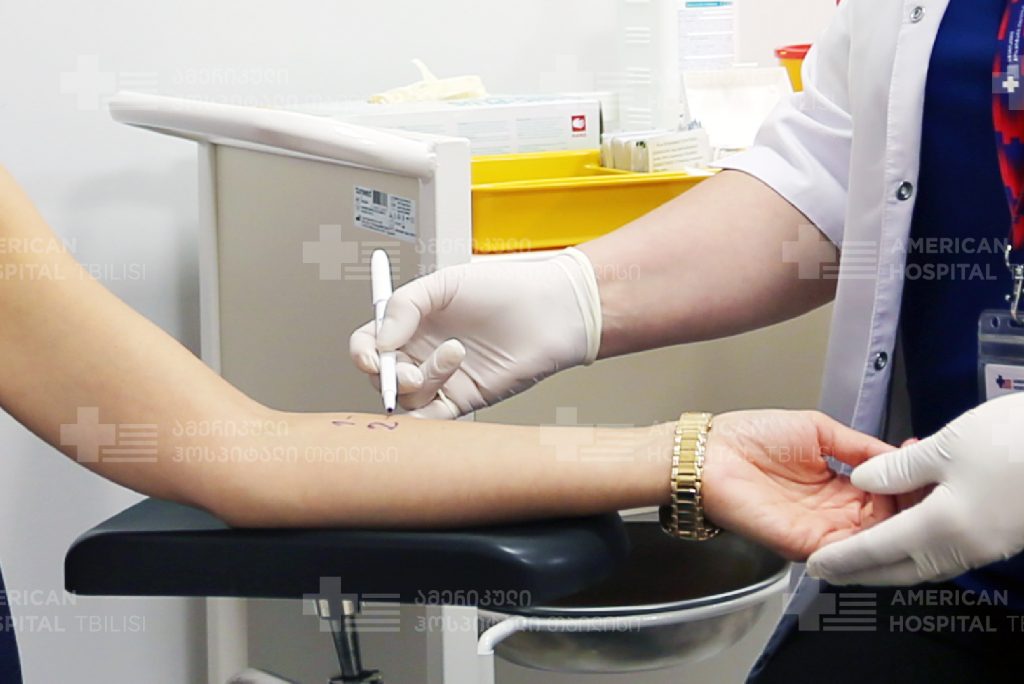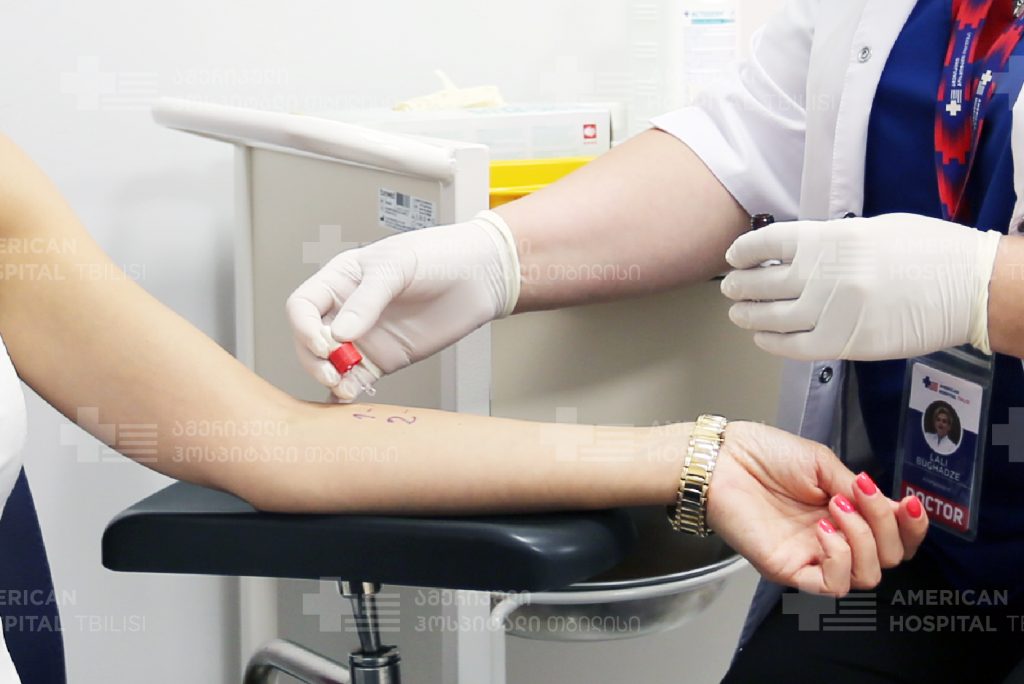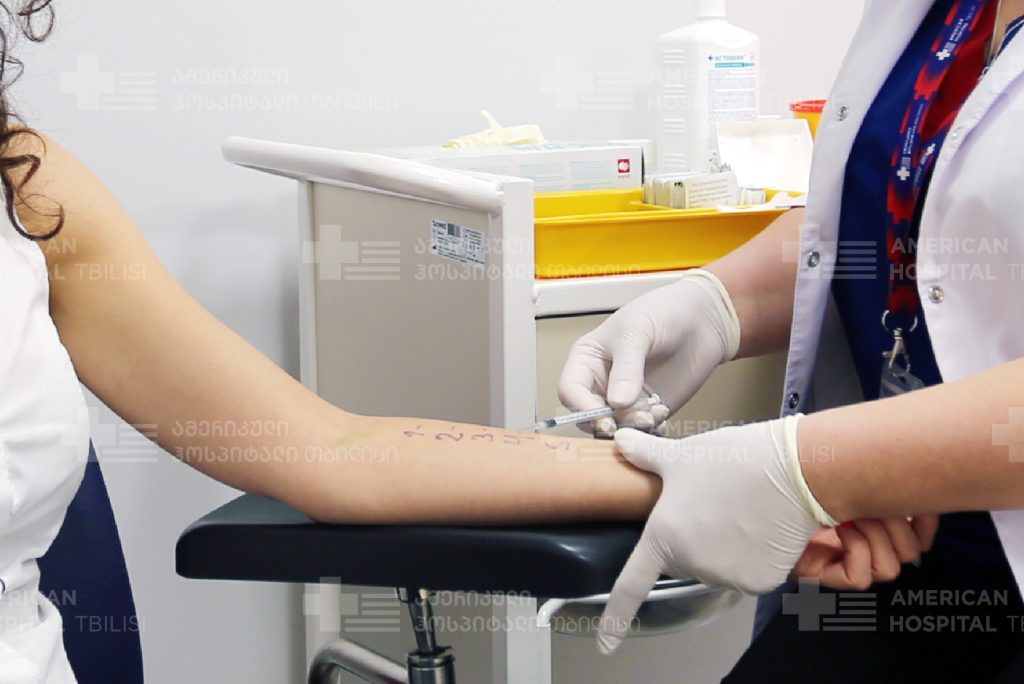Allergy diagnostics is one of the most demanded studies, which is caused by the significant increase in allergic diseases and the frequency of life-threatening complications.
Allergy test gives us information about the causative allergen and helps us to correctly plan disease treatment and prevention measures.
What types of tests are there?
There are two methods for allergy diagnosis:
• determination of appropriate, specific, antibodies (specific IgE) in the blood;
• Allergic skin samples.

How to prepare for an allergy test?
The principle of conducting an allergic skin test is based on the fact that specific antibodies against allergens are fixed on the cells placed under the skin and mucous membranes – mast cells. Therefore, the allergen introduced into the surface layer of the skin reacts with the corresponding antibody and causes allergic inflammation of the skin – redness, and itching, which proves the existence of an allergy to this particular substance. For the reliability of the obtained result, it is necessary to stop taking antihistamine drugs 3-5 days before the procedure in order not to suppress the skin reaction.
Among the blood tests, the determination of specific IgE is most often used. The Immunoglobulin E class is responsible for immediate allergic reactions. This analysis is one of the most accurate and expensive methods for detecting increased sensitivity to plant, epidermal, house dust mites, food, mold, and mushroom allergens.

What is the purpose of allergy testing?
The purpose of allergy testing is to identify a possible allergen or allergens for further management of the disease. Detection of an allergen allows us to conduct specific immunotherapy and thereby reduce the sensitivity of the immune system to a given allergen.

Are there risks involved in allergy testing?
An allergic skin test may reveal an allergic reaction in the form of urticaria, angioedema, and in very rare cases, an anaphylactic state.
Why are allergy tests conducted?
With the help of allergy diagnostics, the doctor determines which allergen is the cause and how much the “culprit” allergen can cause a life-threatening allergic reaction.
Is an allergy test necessary?
Allergic diseases can be managed after allergy diagnosis. Detection of the “culprit” allergen allows us to properly plan the treatment of allergic diseases and prevent further exacerbations.
Determining the immediate cause of the allergen prevents serious complications, and allows us to more accurately select a treatment plan.

What should I do if I have an allergy?
In case of any allergy symptoms, consult a professional allergist, where, along with other allergy tests, you will have the opportunity to determine the cause of the allergy and thus ensure the correct treatment and management of your disease.





